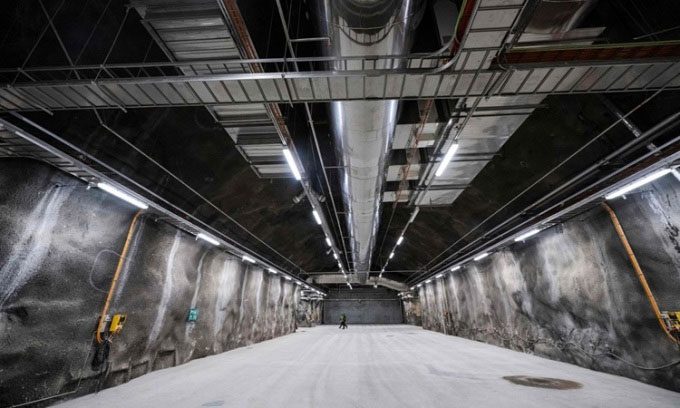In a move towards sustainable management of nuclear waste, Finland is set to become the first country to bury used nuclear fuel underground for long-term storage.
Nuclear energy is a low-carbon energy source that harnesses the power within atoms. However, managing nuclear waste is crucial due to its radioactive nature, which can pose safety and environmental risks. This type of waste can remain hazardous for thousands of years. Therefore, careful handling of waste to protect humans and the environment is vital.

Onkalo will securely store nuclear waste for decades. (Photo: BBC).
The Onkalo Project in Finland marks a significant advancement in waste reduction. Onkalo, which means “cave” or “hollow” in Finnish, has been constructed over the past two decades to serve as an underground repository, acting as the world’s first permanent storage facility for nuclear waste.
“The facility can hold a total of 5,500 tons of nuclear waste“, said Antti Joutsen, a geologist working on the project. “Thus, Onkalo will accept all high-level radioactive waste from Finland’s five nuclear power plants throughout their operational lifetime.”
The importance of Onkalo extends beyond Finland’s borders. The International Atomic Energy Agency describes this project as a game-changer in nuclear waste management. The Onkalo project positions Finland a decade ahead of countries struggling to address similar challenges.
At the core of Onkalo is the KBS-3 design, a result of collaborative development with the Swedish Nuclear Fuel and Waste Management Company. This advanced approach employs a multi-barrier system, encapsulating nuclear waste within copper canisters, surrounded by clay, and buried deep within a stable bedrock layer. By safely isolating nuclear waste from the environment, the project minimizes the risk of radiation exposure and environmental contamination. Moreover, Onkalo serves as evidence that technology can help tackle urgent environmental challenges. For instance, a type of molecular crystal nicknamed “octopus” and waste-eating bacteria offer potential solutions for collecting byproducts from nuclear reactors, even breaking down waste, making nuclear energy a more viable clean option.
As Finland progresses towards the operational phase of Onkalo, it will set a precedent for global nuclear waste management.


















































